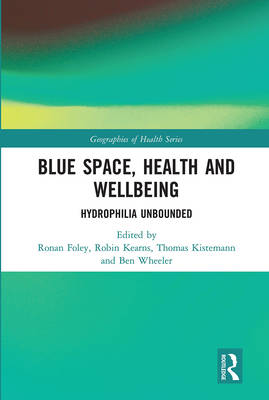
- Retrait gratuit dans votre magasin Club
- 7.000.000 titres dans notre catalogue
- Payer en toute sécurité
- Toujours un magasin près de chez vous
- Retrait gratuit dans votre magasin Club
- 7.000.000 titres dans notre catalogue
- Payer en toute sécurité
- Toujours un magasin près de chez vous
Blue Space, Health and Wellbeing
Hydrophilia Unbounded
Description
Health geography makes critical contributions to contemporary and emerging interdisciplinary agendas of nature-based health and health-enabling places. Couched in theory and critical empirical work on nature and health, this book addresses questions on the relationships between water, health and wellbeing. Water and blue space is a key focus in current health geography research and a new hydrophilic turn has emerged with a particular focus on the aspects of water which are affective, life-enhancing and health-enabling. Research considers the benefits and risks associated with blue space, from access to safe and clean water in the Global South, to health promoting spaces found around urban waters, to the deeper implications of climate change for water-based livelihoods and indigenous cultures. This book reflects recent theoretical debates within health geography, drawing from research in the public health, anthropology and psychology sectors. Broad thematic sections focus on interdisciplinary, experiential and equity-based elements of blue space, with individual chapters that consider indigenous and global health, water's healing properties, leisure and blue yogic culture, coastal landscapes, surfing, swimming and sailing, along with more contested hydrophobic dimensions.
The interdisciplinary lens means this book will be extremely valuable to human geographers and cultural geographers. It will also appeal to practitioners and researchers interested in environmental health, leisure and tourism, health inequalities and public health more broadly.
Spécifications
Parties prenantes
- Editeur:
Contenu
- Nombre de pages :
- 262
- Langue:
- Anglais
- Collection :
Caractéristiques
- EAN:
- 9780367661809
- Date de parution :
- 30-09-20
- Format:
- Livre broché
- Format numérique:
- Trade paperback (VS)
- Dimensions :
- 156 mm x 234 mm
- Poids :
- 371 g






